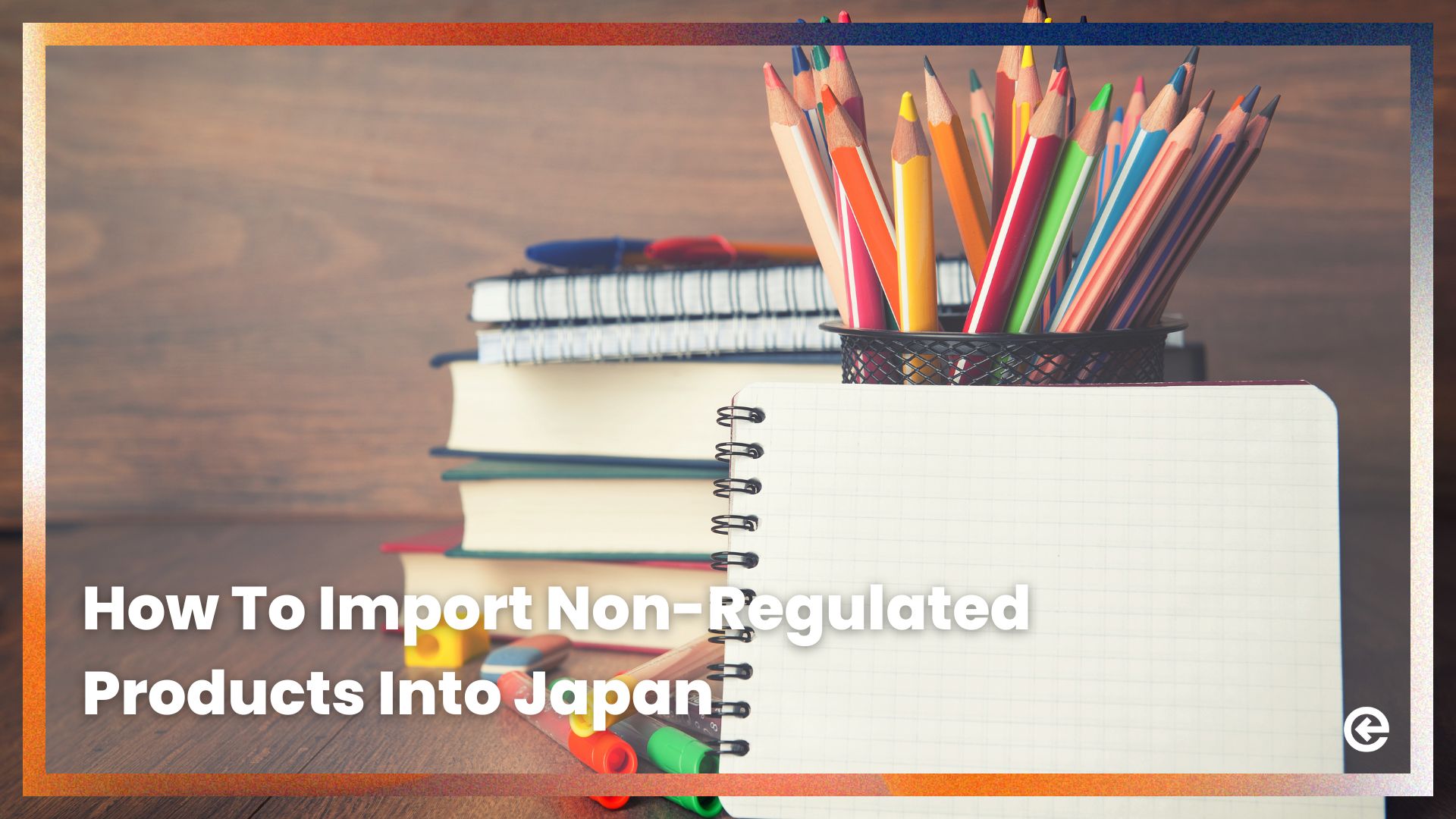How To Import Non-Regulated Products Into Japan
Expanding your business into Japan presents exciting opportunities, and it also comes with important regulatory requirements that you need to be aware of. This guide will walk you through the essential steps of the import process for non-regulated products, covering everything from product classification to securing approvals, filing import declarations, and meeting labeling standards. Understanding these requirements is key to ensuring your products meet all regulatory standards and smoothly enter the Japanese market.
Step 1: Identify what category your product is – Non-Regulated vs. Regulated Products
Before importing your products into Japan, it’s helpful to determine whether your product falls under the “non-regulated” or “regulated” category according to Japanese law.
Non-regulated products are typically general consumer goods like apparel, accessories, or household items that do not require government approval prior to import. While these items face fewer restrictions, compliance with customs procedures and labeling rules is still required.
Products such as food, cosmetics, and electronics must meet strict regulations before entering Japan. Regulated products have additional safety, health, or environmental requirements and usually need certifications or permits before import. Meeting these standards helps avoid delays or issues during customs clearance.
Identifying your product classification will be your first step. If you’re unsure about your product’s classification, you can check official resources from authorities like MAFF, MHLW, and Customs, or let experts like COVUE assist you with a thorough review. Typically, the ACP notification process for non-regulated products takes about two weeks, making the import process more straightforward and efficient.
Step 2: Engage Attorney for Customs Procedures (ACP)
For companies who do not have a local office or subsidiary in Japan, an ACP is required to:
- File the import notification with Japanese Customs.
- Communicate directly with customs officials.
- Handle inspections, document clarification, and compliance issues.
Japan requires companies who do not have a physical presence in Japan to work with an ACP to import. Learn more about this here.
If you’re importing a non-regulated product, you should only need an ACP. How do you find an import partner that’s right for you and what your brand needs? Learn more here.
Step 3: Get Approval For Import – Submitting your ACP Notification
Before shipping your products, an ACP notification must be submitted by your designated ACP. This notification should be completed before shipping your products to Japan. At COVUE, we act as your registered ACP and handle the entire process on your behalf, ensuring compliance with Japanese customs regulations.
Required Documentation for the ACP Notification:
To get approval for your import, the following documents must be prepared and submitted by the ACP:
- Official Company Registration
- Product Listings or Line Sheet: Details of your location of sales and product information
- Details of your product price
Depending on your products, additional documents may be requested.
Step 4: Approved for import – Getting your documents right
Once you have received approval for import, your ACP will create and issue your Import Shipping Invoice. This document details product prices, country of origin, product descriptions, and HS tariff codes, and is required by customs.
This invoice must align with your retail listings or sales invoice for your products. Customs requires this document for customs clearance and uses it to verify shipment value. Any discrepancies can cause delays or reassessment of declared values.
Once you have this Import Shipping Invoice, you can arrange your shipment to Japan.
Unsure how to prepare these documents? Check out our detailed guide here.
Step 5: Arrival in Japan – Clearing Customs
Once your product arrives at a Japanese port or airport, it enters the customs clearance process. During this time, the shipment is placed in a bonded warehouse or customs-controlled area, where it is held securely while customs officials review the submitted import documentation and inspect the products if necessary. This review includes verifying the accuracy of paperwork, product classification, and compliance with applicable regulations. Customs clearance is the most time-sensitive part of the process, and delays in customs can hold up your shipment, leading to costly storage fees.
When import documents are approved, customs calculates the applicable duties based on HS codes and applies consumption tax—usually around 10% of the declared import value. Payment for these will be managed with your customs broker and handed either directly with you or with your logistics partner.
Step 6: Shipping to the Final Destination
Upon successful examination and payment of duties and taxes, Japan Customs issues an import permit notification to the ACP or shipper. This official approval allows your shipment to leave bonded storage and proceed to their final destination within Japan.
Once you have cleared customs, you shipment will continue its journey on to its final destination with your international logistics partner or with your dedicated Japan Inbound Logistics partner.
At this stage, reliable shipping and logistics partners play a critical role in ensuring timely delivery to your final destination in Japan.
Successfully importing products into Japan involves confirming product classification, ensuring all regulatory requirements are met, and handling customs clearance. With the right support, like working with an Attorney for Customs Procedures (ACP), you can streamline the process.
Need help bringing your products into Japan?
At COVUE, we provide comprehensive ACP (and IOR for regulated products) services, including regulatory screening, import notification filing, and full label creation and localization. We handle all aspects of your import process, from obtaining permits to ensuring your product labels meet Japan’s specific regulations. Ready to ship your product to Japan? Let COVUE handle the paperwork, compliance, and customs so you can focus on growing your brand.


